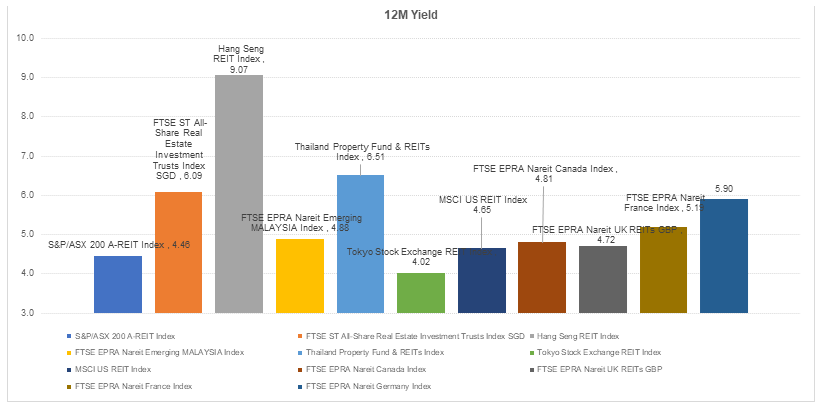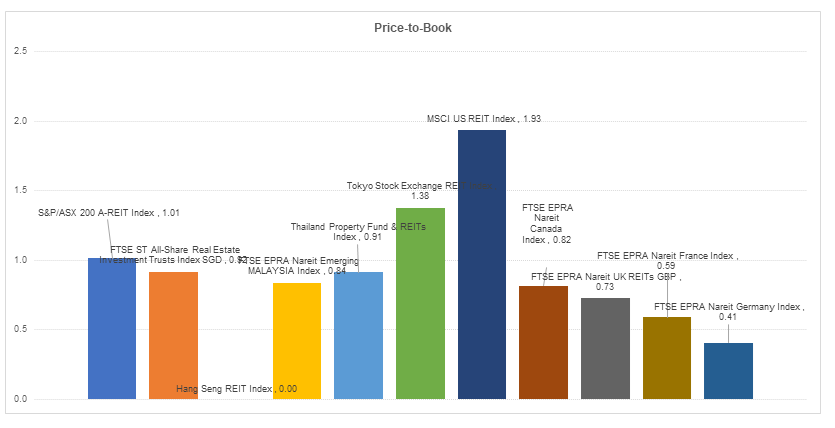
Weekly Commentary: 22 May 2023 – 28 May 2023



Major benchmarks ended higher last week even though there were concerns over the health of the US regional banking sector and paused negotiations over the debt ceiling deal. Investors were buying short-dated US Treasuries and expectations are that the Federal Reserve would not raise interest rates after Jay Powell warned tighter credit conditions- the result of the US banks turmoil. The rise in S&P 500 was due to the outperformance of mega-cap technology-related stocks like Alphabet Meta, NVIDIA and AMD. Retail sales rose to a seasonally adjusted 0.4% last month from the month before. They spent more on autos and dining, while boosting online purchases.
European stocks however, did well. They rose on Friday, pushing Germany’s Dax close to a record high. Germany’s PPI for April shown that the inflation rate had fallen to 4.1% compared with 6.7% in March. It was helped by European natural gas prices falling back to normal trading range for the first time since the start of the energy crisis, falling below $30 per megawatt hour.
Stock returns were higher over the week as observed across the following 3 indices, with the Dow Jones Industrial Average (+0.50%), S&P 500 Index (+1.71%), NASDAQ Composite Index (+3.08%). Other key market indices that generated positives returns consist of MSCI World (+1.27%) only. 3 S&P 500 sectors registered positive returns last week – Information Technology (+4.25%), Consumer Discretionary (+2.64%) and Communication Services (+3.06%). Main underperformers for the week were from subsectors such as Consumer Staples (-1.63%), Real Estate (-2.37%) and Utilities (-4.27%). For 2022 as a whole, index returns were negative for the Dow Jones Industrial Average (-8.78%), S&P 500 (-19.44%) and the NASDAQ Composite (-33.10%).
The yield-curve remains inverted as the 10Y-2Y US Treasury spread remained unchanged at -0.52%. driven by U.S 2-year and 10-year Treasury yields rising 26bps to 4.25% and rising 20 bps to 3.67% respectively. Market sentiment also became more risk-off as the U.S. High Yield (HY) – Investment Grade (IG) credit spread widened 8bps to 3.34% while the CBOE Volatility Index (VIX) has fallen by 22 bps to 16.81%.
This coming week, UK inflation figures will be released. BOE is expecting the annual rate of inflation to drop 2% from 10.1% in March to 8.4% in April. Central Bank in Indonesia, South Africa, South Korea and Turkey are expected to leave their interest rate unchanged.

The global REIT market’s return was varied across the numerous benchmarks. FTSE EPRA Nareit emerging Malaysia index (-3.02%) and FTSE ST All-Share Real Estate Investment Trusts Index SGD (-2.01%) were the notable REITs that generated negative returns over the past week. Closer to home, the iEdge S-REIT Index (+0.07%) and all of its subsectors generated mixed weekly returns with Diversified (-0.94%), the notable sector that drop the most last week while Real Estate Operating Companies outperformed (+2.88%). REITs generally have been affected by decreasing yield spread as interest rates surged and investors price in the possibility of reduced distributions stemming from higher financing costs. However, we do expect inflows to return to the sector given the existing attractive valuations on offer and resilience offered by the REIT asset class in light of the waning global growth outlook.



Important Information
This material is provided by Phillip Capital Management (S) Ltd (“PCM”) for general information only and does not constitute a recommendation, an offer to sell, or a solicitation of any offer to invest in any of the exchange-traded fund (“ETF”) or the unit trust (“Products”) mentioned herein. It does not have any regard to your specific investment objectives, financial situation and any of your particular needs. You should read the Prospectus and the accompanying Product Highlights Sheet (“PHS”) for key features, key risks and other important information of the Products and obtain advice from a financial adviser (“FA“) before making a commitment to invest in the Products. In the event that you choose not to obtain advice from a FA, you should assess whether the Products are suitable for you before proceeding to invest. A copy of the Prospectus and PHS are available from PCM, any of its Participating Dealers (“PDs“) for the ETF, or any of its authorised distributors for the unit trust managed by PCM.
An ETF is not like a typical unit trust as the units of the ETF (the “Units“) are to be listed and traded like any share on the Singapore Exchange Securities Trading Limited (“SGX-ST”). Listing on the SGX-ST does not guarantee a liquid market for the Units which may be traded at prices above or below its NAV or may be suspended or delisted. Investors may buy or sell the Units on SGX-ST when it is listed. Investors cannot create or redeem Units directly with PCM and have no rights to request PCM to redeem or purchase their Units. Creation and redemption of Units are through PDs if investors are clients of the PDs, who have no obligation to agree to create or redeem Units on behalf of any investor and may impose terms and conditions in connection with such creation or redemption orders. Please refer to the Prospectus of the ETF for more details.
Investments are subject to investment risks including the possible loss of the principal amount invested, and are not obligations of, deposits in, guaranteed or insured by PCM or any of its subsidiaries, associates, affiliates or PDs. The value of the units and the income accruing to the units may fall or rise. Past performance is not necessarily indicative of the future or likely performance of the Products. There can be no assurance that investment objectives will be achieved. Any use of financial derivative instruments will be for hedging and/or for efficient portfolio management. PCM reserves the discretion to determine if currency exposure should be hedged actively, passively or not at all, in the best interest of the Products. The regular dividend distributions, out of either income and/or capital, are not guaranteed and subject to PCM’s discretion. Past payout yields and payments do not represent future payout yields and payments. Such dividend distributions will reduce the available capital for reinvestment and may result in an immediate decrease in the net asset value (“NAV”) of the Products. Please refer to <www.phillipfunds.com> for more information in relation to the dividend distributions.
The information provided herein may be obtained or compiled from public and/or third party sources that PCM has no reason to believe are unreliable. Any opinion or view herein is an expression of belief of the individual author or the indicated source (as applicable) only. PCM makes no representation or warranty that such information is accurate, complete, verified or should be relied upon as such. The information does not constitute, and should not be used as a substitute for tax, legal or investment advice.
The information herein are not for any person in any jurisdiction or country where such distribution or availability for use would contravene any applicable law or regulation or would subject PCM to any registration or licensing requirement in such jurisdiction or country. The Products is not offered to U.S. Persons. PhillipCapital Group of Companies, including PCM, their affiliates and/or their officers, directors and/or employees may own or have positions in the Products. This advertisement has not been reviewed by the Monetary Authority of Singapore.
